Post by Dr. Angelica Kohlmann – While overlooking the wide coffee fields, interrupted only by some palm trees, it became clear that this was a moment I wouldn’t want to forget. Our trip was coming to an end. The dark green coffee plantations covering the ground like a velvet carpet reflected the strength of this country I had left 38 years ago – at the age of 18. On the horizon, the blue sky softly touched the leaves resembling the country’s flag. Much happened during the last 38 years. Brazil had gone through a military dictatorship, then a rising democratic movement to be devastated by a left-wing government as corrupt as any other before. The red earth, however, was as fleshy and fruitful, as healthy as ever. The soft wind made the palm tree leaves dance and shine in the sun. Not much seemed to have changed, after all.
Driving through the inland of the state of São Paulo, where most of the large coffee farms are located, the romance of an old, almost-vanished world is still present. It clashes with the modern sights, with the newly constructed streets, with ads for mobile phones.
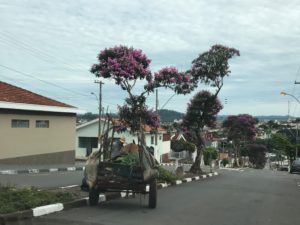
It were not only these contradictions that left a striking impression on me. No matter how bad the current wave of corruption scandals is, their surfacing is merely a symptom of the country finally having a literate population, able to criticize their government and the economic elite it colluded with through demonstrations in the streets. Today, you can find ever more people wanting to comply with stricter rules. Having visited Brazil at least once a year since I left, I can finally conclude that it is a country where law and order begins to triumph over the recurring chaos of the past.
Maybe for the “country of the future”, the future is arriving at last. I could feel and even smell this development at the Cooperativa Guaxupé, or Cooxupé, one of the largest coffee traders in the country, where the scent of coffee is everywhere. A good friend and his family, coffee farm owners, invited my son and me to visit their farm for a few days and to learn more about Cooxupé.
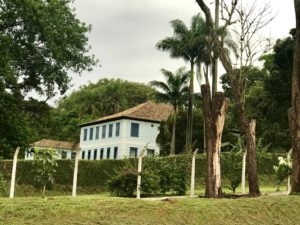
Equipped with the latest technology, they classify, store, pack and export coffee beans to dozens of countries around the globe. The classification of each specific coffee batch is possibly the most important part in this chain, as it determines the price, which local coffee farmers can expect to achieve in the international auction of their product. The size of a coffee bean is important here, but more so, is the taste – the only attribute that can solely be categorized by a human. A coffee taster needs to be highly experienced to be able to recognize different nuances of taste and quality. A waft more bitter, or sour; a slightly more intense or fruity taste will be decisive for category and price. In the past, farmers have tried to influence this process and the tasters to obtain higher classifications. Today, farmers are no longer able to corrupt the system. The tastings are undertaken anonymously and results are registered electronically, leaving no chance to manipulate a coffee taster. Something inconceivable just a few years ago.
Brazil is not only fighting the corruption in its coffee industry, but is also improving its quality and increasing its share of the world market through growing investment. Some coffee farmers went bankrupt during the crisis and the accompanying deflationary period, but others recognized that investing in quality and sustainability would enable them to become more competitive. It worked. And what a delight it is to see.
The improvements achieved in one of the most important economic areas in the country is evidence of how past efforts are paying off. This attitude hasn’t penetrated many other sectors yet, but there is reason to believe that the pressure to continue on this path is strong.
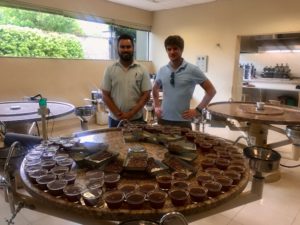
Brazil is still denoted as a country full of contrasts – something I experienced during the international music festival in Mococa, the former coffee capital. The performance, inside the colorful Cathedral, with works of Georg Philipp Telemann, Henry Purcell, Vivaldi and other European baroque composers at first seemed to juxtapose this young, diverse country, where fascinating African rhythms, Bossa Nova and the soft perfume of coffee are everywhere. Yet, all of a sudden, it fitted in, magically, as if Telemann and the others have always intended for their music to play in the Brazilian jungles. The powerful sound of the strings allowed for one’s thoughts to fly off, leaving the Cathedral and overlooking the vast green fields, endless plantations, sweeping water reservoirs and thick forest surrounding us. I seemed to be far away from economic challenges, corruption, crime. At the end of the concert a heavy, tropical rain set off bringing me back to reality. But my daydreams were beautiful – the vision of a safe and developed country, without corruption or felonies.
Brazil’s main challenge – the lack of control due to the lack of education – is vanishing. The international community has yet to realize this important step as it mainly sees the scandals in the daily news. The country should be supported to allow for a more structured transition to a working and transparent democracy.

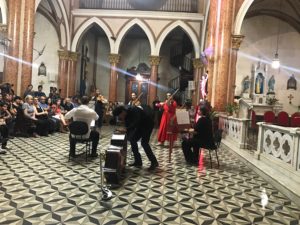
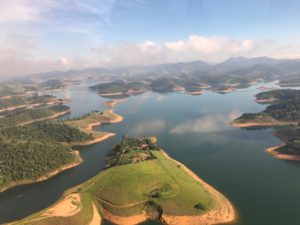
During the last hour of our long flight back from São Paulo to Zurich, after heavy snow storms, the skies were unusually clear. The captain asked for permission to descend to 6,000 meters and made a turn over the Alps to pass Montblanc and Matterhorn. The huge amounts of snow glistening in the sun, covering the mountains offered breath-taking views. We could almost touch them – and I knew I was back to a safe haven. At the same time, I already missed Brazil.
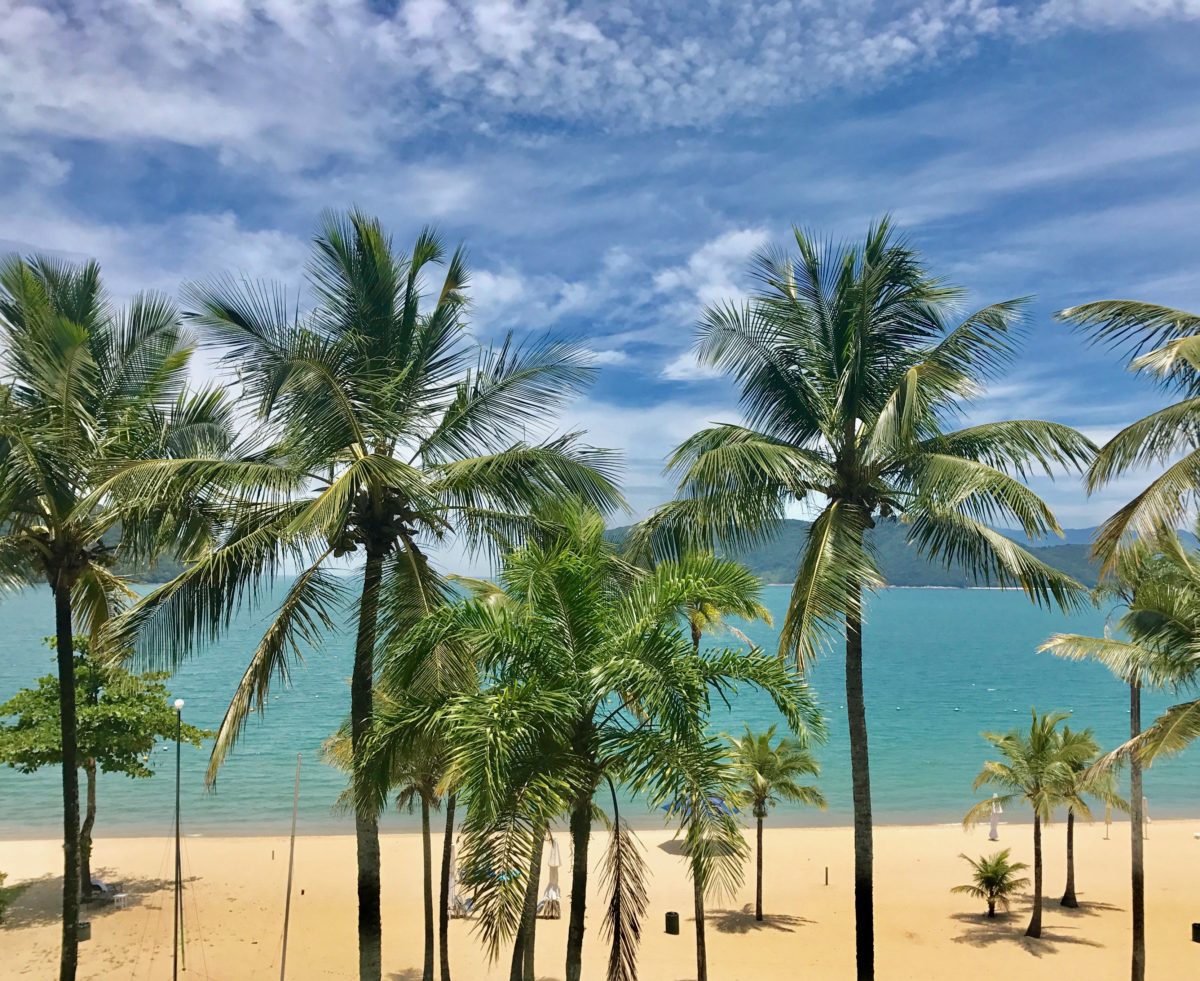
Caroline Altmann
June 10, 2017What a beautiful description of Brazil’s progress! Lovely. Skillful writing in your 3rd? language:))))